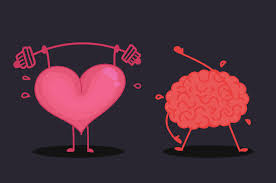 I like to report on medical research that shows that if a patient does what is directed by their doctor, they can avoid a problem or see a benefit in their lives. I like it even more when I can offer research that delivers a bonus or another benefit in addition to what a patient may have been expecting for paying heed to doctor’s orders. This is one of those bonus stories.
I like to report on medical research that shows that if a patient does what is directed by their doctor, they can avoid a problem or see a benefit in their lives. I like it even more when I can offer research that delivers a bonus or another benefit in addition to what a patient may have been expecting for paying heed to doctor’s orders. This is one of those bonus stories.
Half of all adult Americans have high blood pressure. That’s more than 103 million people whose blood pressure is at unhealthy elevated levels. While many of these individuals can bring their numbers back under control with diet and exercise, the rest are prescribed one or more anti-hypertensive medications like an ACE inhibitor, a beta blocker, an angiotensin II receptor blocker, a calcium channel blocker or a diuretic. In some cases a person may be on more than one of these agents to bring their blood pressure down and preserve their cardiovascular health.
Dementia researchers involved in analysis of large scale data are telling us that there may be an added benefit for these BP patients. They may also be preventing the onset of one or more types of dementia if they are adhering to their blood pressure treatments. The researchers have tracked more than 31,000 patients who had been dementia-free 22 years ago, and found that over time 1,741 developed Alzheimer’s disease specifically and 3,728 just developed some form of dementia (most typically vascular dementia). Among the adults with high blood pressure at the outset in this large panel and who used a blood pressure medication, they were statistically less likely to develop dementia of any sort than those not on a medication. In fact, the difference between those who would develop dementia and those who would not was statistically significant across all types of anti-hypertensives. And it was significant for Alzheimer’s disease specifically as well as the other dementias. (Vascular dementia, or mini-strokes as it is sometimes called, could understandably be linked to better controlled blood pressure, but Alzheimer’s has a different mode of acting.)
Also noteworthy is the fact that there was no drug company funding for this research. While funding does not cause results of any sort, it is helpful to see that there is no suggestion of sponsorship in any financial way influencing outcomes.
If you or a loved one are among the 103 million Americans with elevated blood pressure, staying with your blood pressure medications will be good for your heart and your head!
Charlotte Bishop is an Aging Life Care Advisor, Geriatric Care Manager and founder of Creative Care Management, certified professionals who are geriatric advocates, resources, counselors and friends to older adults and their families in metropolitan Chicago. She also is the co-author of How Do I Know You? A Caregiver’s Lifesaver for Dealing with Dementia.





